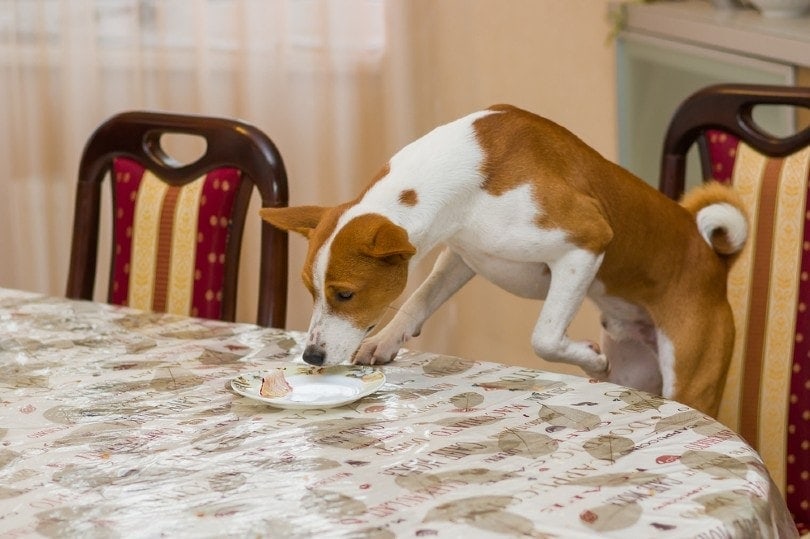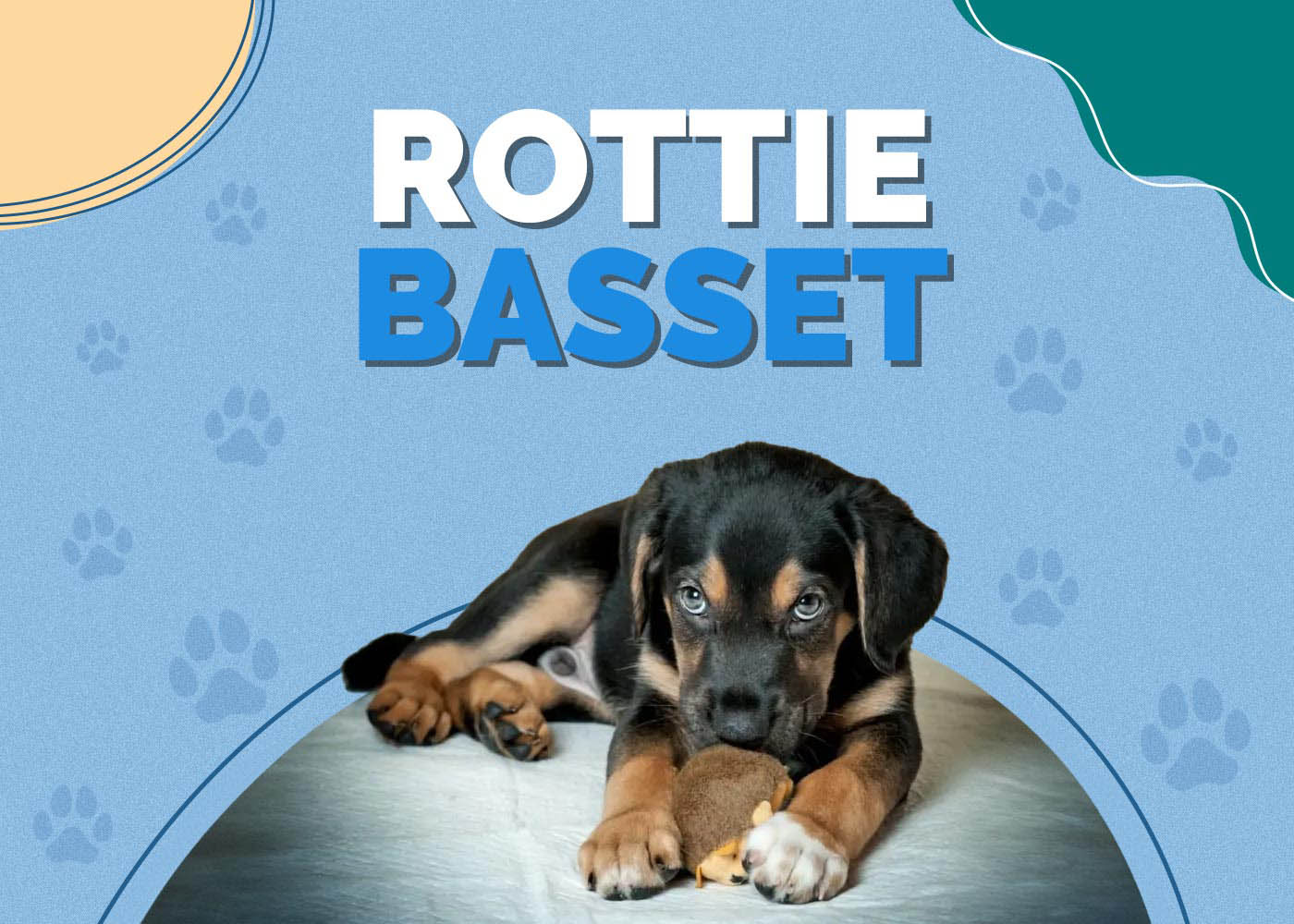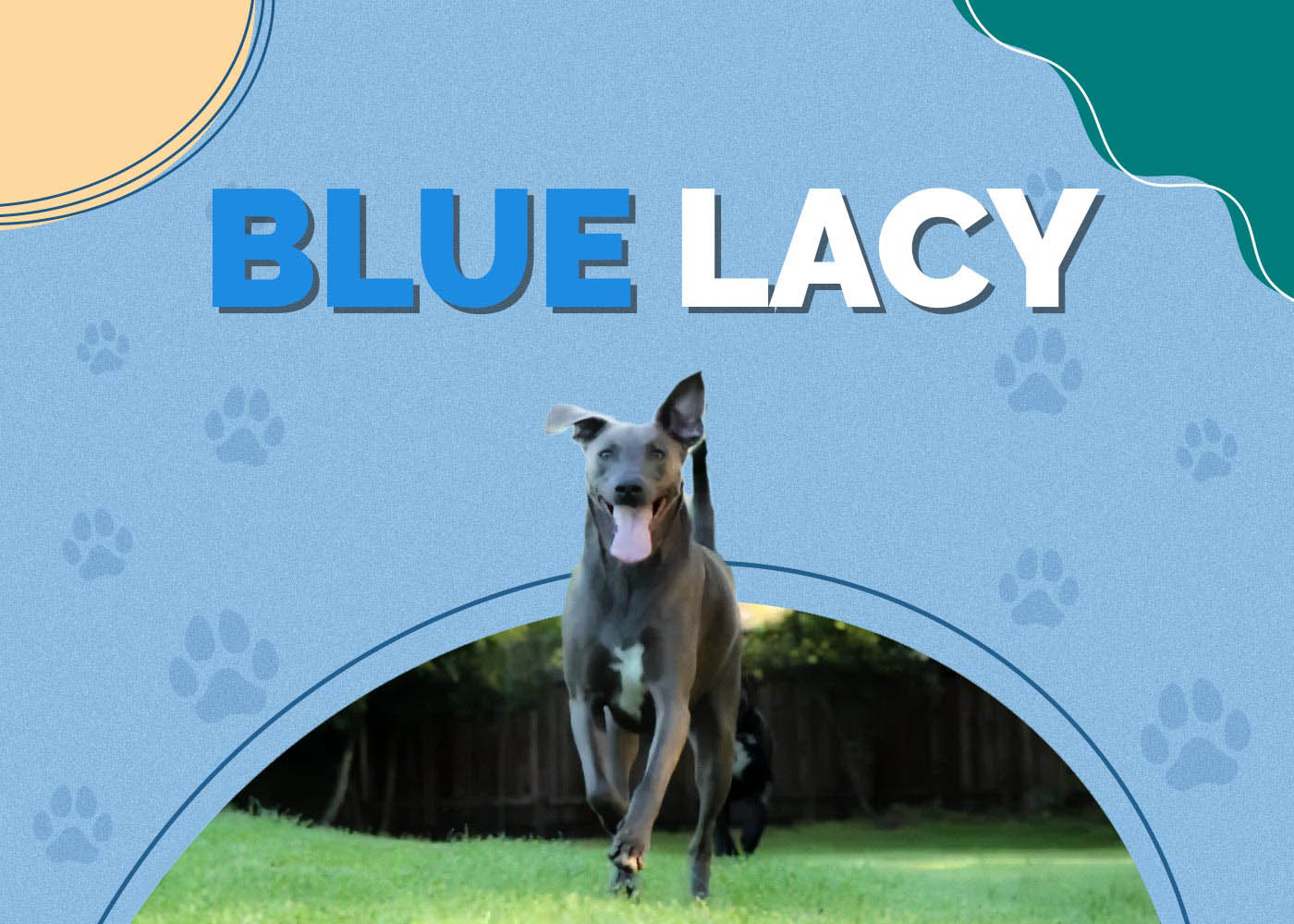Why Does My Dog Lick the Furniture? 9 Reasons & Expert Tips

Updated on
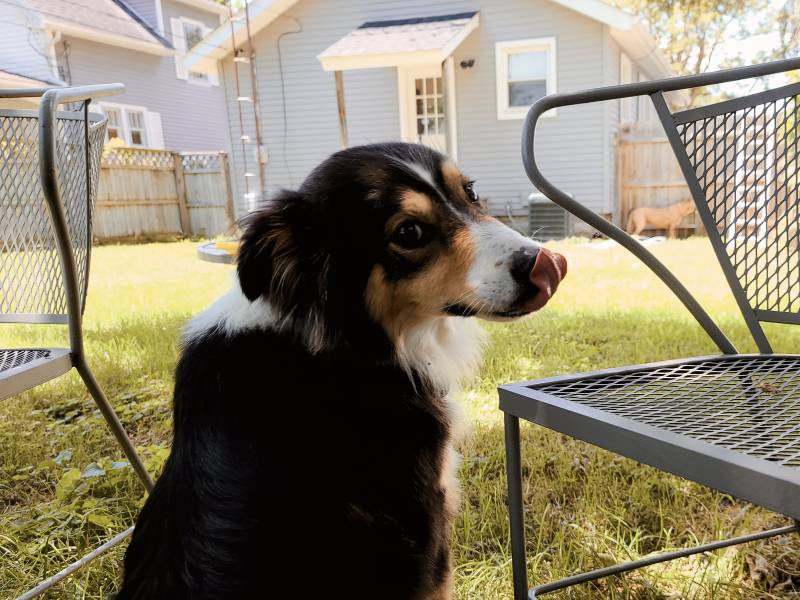
A quirky dog is a charming dog, but sometimes peculiar behaviors become worrisome. Well, you must have known by now that a dog smells and tastes things just as a way of exploring their world. However, a dog that persistently and compulsively licks can become a concern and often indicates an underlying problem. Parents should always watch out for when and what their pets lick to understand what causes this behavior.
If you’ve tried getting your pup’s tongue off your couch, carpet, pillows, and beds, here’s everything you need to know to find the help you need.
What is Excessive Licking?
If there’s something that dog parents can be sure of, their pets will constantly lick. It is the only way they can feel their environment. However, the problem starts when you start noticing and feeling that the licking is too much and you can’t handle it anymore. Any dog can display licking behavior regardless of age, gender, or breed. This behavior can drive any dog parent crazy, and yes, it has a severe side.
It can be hard to believe, but your pup has a justifiable reason why he loves to lick your furniture. It could be anything from the tasty food crumbs on the furnishing to health reasons like stress and anxiety.
Excessive licking in dogs is when your pet licks any surface for an extended period, and more aggressively and compulsively than usual. Dogs that lick obsessively always seem spaced out while at it, and it’s hard to interrupt or stop it at that moment.
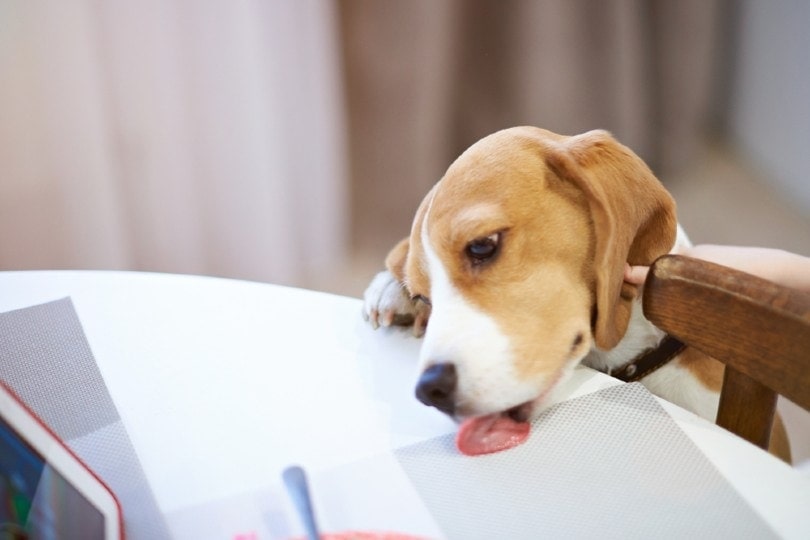
Symptoms of Compulsive Licking in Dogs
You can know if your dog’s licking is out of the ordinary from precisely what you see—repeating the behavior day in and day out and spending too much time licking. Dogs can virtually put their mouths on anything they see or within their reach, like you or your furniture.
- Excessive licking of everything within reach like your furniture, its paws, the carpet, other pets, its genitals, the tiles, and even the air!
- Prolonged licking—it lasts longer than usual, and there’s nothing you can do to interrupt it.
- The behavior starts intermittently and gradually increases in frequency and intensity over time.
- A pup can scratch and bite while licking obsessively.
- Visible skin abrasions, hot spots, and red skin.
Why Do Dogs Lick Furniture?
1. Scent Identification
A dog can uncontrollably lick specific furniture, perhaps your favorite chair or its sleeping rug, because there’s a particular scent embedded in the item’s fabric that he activates by licking it. The dog could be activating his scent to reassure himself that he’s in the right place.
Ideally, dogs may start licking the furniture because it contains your scent or someone else’s. This behavior could be a sign of affection to prove that the dog, no doubt, adores you. Sometimes your dog could just be licking the furniture because it likes the fabric’s taste.
There’s also a possibility that your canine friend sniffed out some minute food particles ingrained in the furniture’s fabric. A dog’s sense of smell is unmatched, and it can find a scent from its favorite treat irresistible. But since the particles are deep in the fabric, tracing the source can be difficult, forcing the dog to lick away at the item, hoping to reach the tasty morsel that planted itself in the furniture.
2. It Could Be Accidental
Dogs groom themselves by licking their bodies, and if your pup has a designated place it likes to rest, its tongue could overlap and lick your furniture. The best way to be sure is to observe it and confirm where it licks the most.
Having a pet means cleaning up smells, stains, hair, vomit, and more...and you can add to your pet clean-up routine with the Hepper Advanced Bio-Enzyme Pet Stain & Odor Eliminator Spray.
- ADVANCED ENZYMATIC CLEANER - Penetrates the most stubborn smells and stains at the deepest molecular...
- FOR ANY MESS, ON ANY SURFACE - This pet odor eliminator cleans your carpets, floors, furniture,...
It's our product, and we love it so much, we just have to share! It permanently removes the very worst smells and stains, and we offer a 100% satisfaction guarantee!
3. Relieving Boredom
Your dog may have singled out a chair, carpet, or couch to lick out of boredom, a behavior that escalated to being problematic and compulsive.
Dogs lick to relieve boredom. A pup that stays home alone for long periods can grow bored with its toys and may lick anything around it to occupy its time until you return home. It may also lick because the chair’s texture reminds it of licking your skin and offers some level of comfort in your absence.
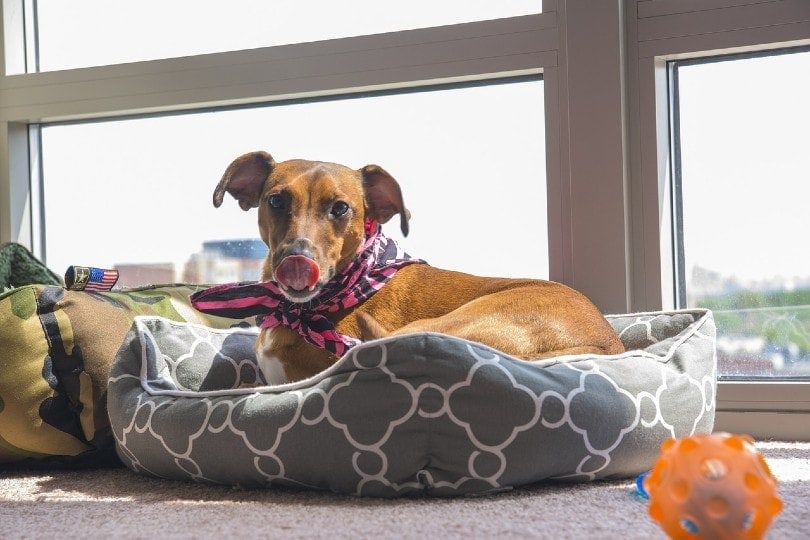
4. Nutritional Deficiency
A dog may lick your furnishings because it lacks certain vital nutrients like minerals and vitamins. It may instinctively resort to licking furniture to try to increment its intake. You should be ready for a trip to the vet if this is the case.
5. Stress and Anxiety
Has anything happened recently that may cause stress and anxiety to your pet? If so, your pet could be licking the furniture because the soft fabric’s sensation offers him an outlet for his feelings.
Apart from that, the canine could be licking for comfort and as a coping mechanism, just like humans require massage to calm down sometimes.
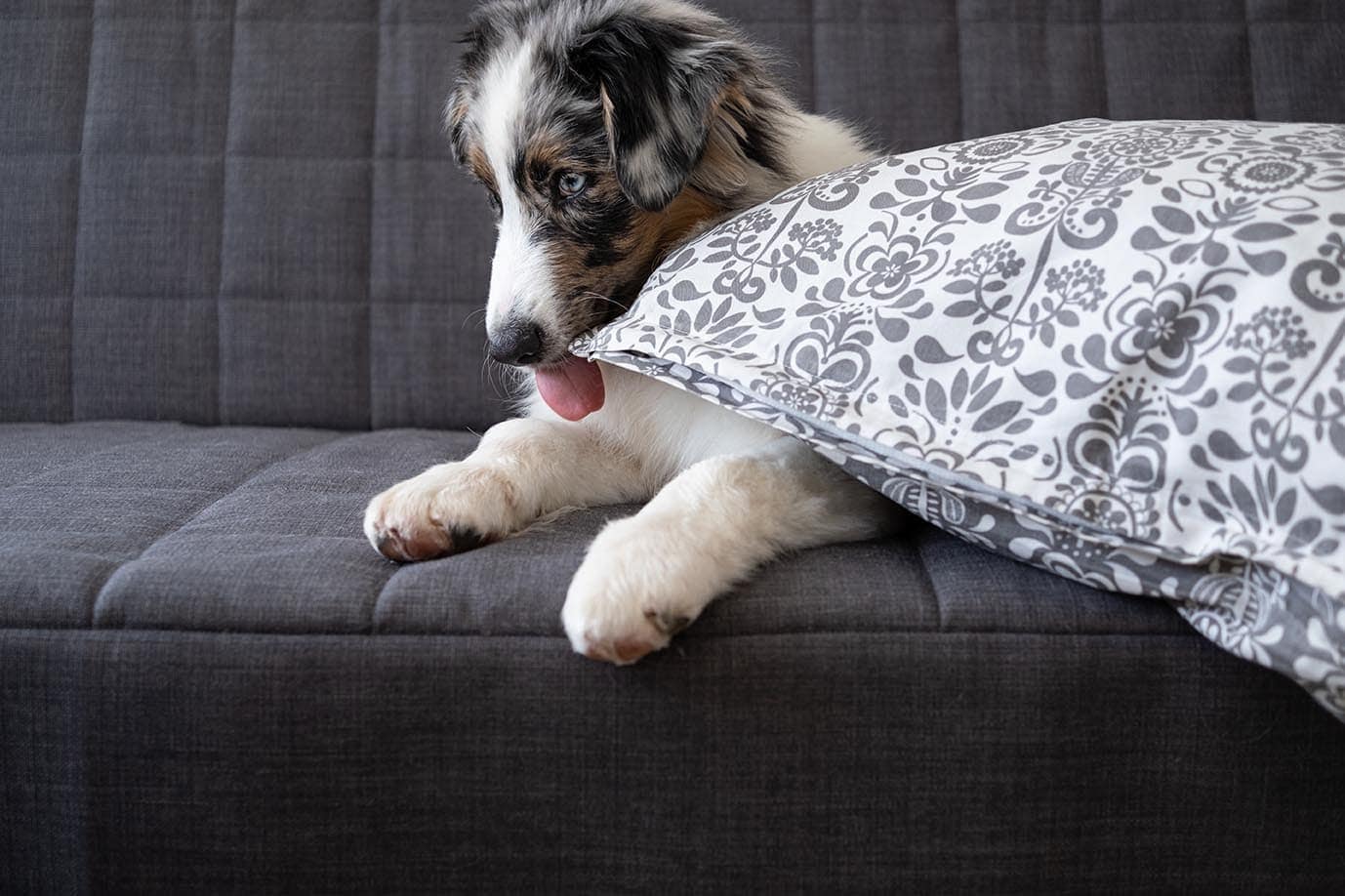
6. Neurological Problem
Dogs also suffer from neurological problems or dog dementia, also known as Canine Cognitive Dysfunction (CCD). This problem alters a dog’s awareness and may cause it to lick anything on its path, as can any other illness.
7. Allergies
Irritability and sensitivity can make your dog do weird things to find relief, including licking the floor and furniture.
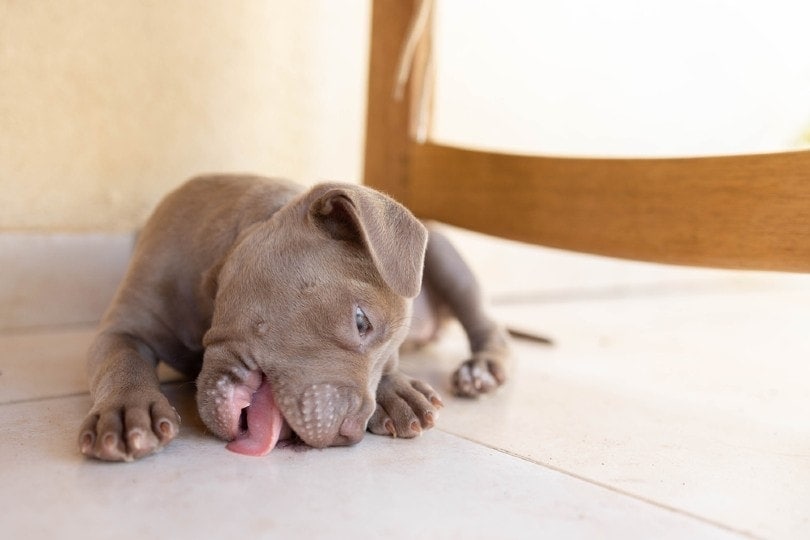
8. Parasitic infections
Parasites like mites, giardia, and fleas can irritate your dog, prompting it to lick your furnishings to cope with the excessive itching.
9. Digestive Disorders
Although licking in dogs has always pointed towards stress and anxiety, gastrointestinal issues could be a significant factor in developing the behavior. A pup can lick anything before it due to delayed gastric emptying, an irritable bowel, or a foreign body in the digestive system.
Such issues may cause abdominal pain that sometimes forces canines to consume weird things to alleviate themselves. They may chew on grass and stones if given a chance, but if it’s a house pet, it can start licking your furniture as a substitute measure.
What Can You Do About A Dog Licking Furniture?
1. Increasing Stimulation and Socialization
Start by eliminating boredom as the cause of the behavior. You can do it by increasing attention, affection, and activity. Work out and play with your canine friend, get a pet sitter, find new toys, enroll it in a dog daycare, or schedule a park day.
You can also organize a playdate with another dog friend, get a second dog for companionship, and devise any other ways to keep your pooch occupied. If boredom and loneliness cause the weird licking of the couches and chairs, these remedies should be able to make it fade away.
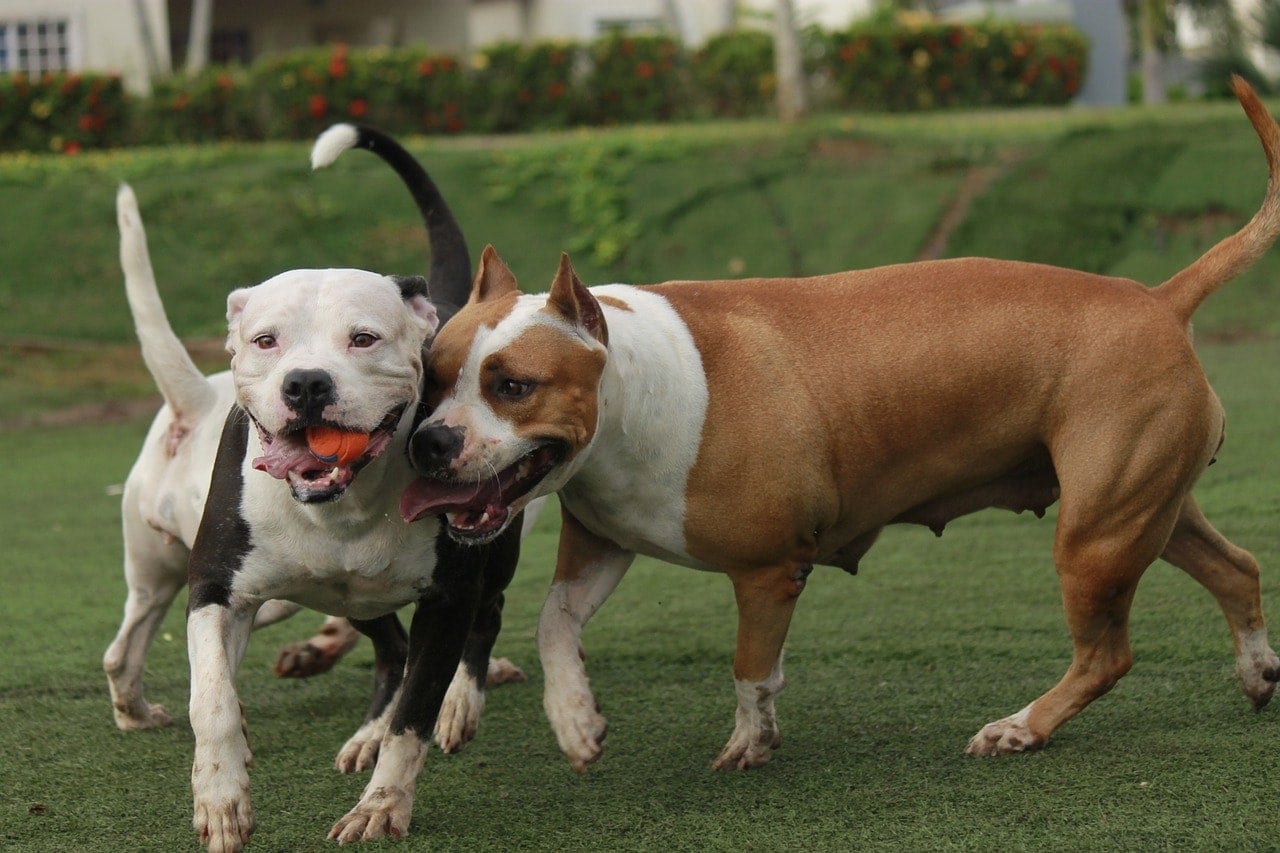
2. Reduce Stress Triggers
Eliminate any sources of stress and anxiety by paying attention to the latest changes in your home. Of course, you can adjust changes like a stranger in the house, increased noise levels, or diet changes.
However, it’s challenging to undo some changes, and you may have to talk to your vet about how to help reduce stress triggers and make your pup as comfortable and safe as possible.
3. Apply a Spray-on Deterrent on the Furniture
You can pick any harmless but pungent-smelling spray deterrent from the pet store and apply it on your couch, carpet, or bed. Better still, vinegar, ammonia, citrus, orange peelings, and cayenne pepper can do the trick.
Your dog will find these surfaces distasteful and stop licking them. However, you should remember finding the root problem to solve would be the best way to deal with the behavior. Making the surfaces bitter may not be the final solution as the pet can still find something else to lick.
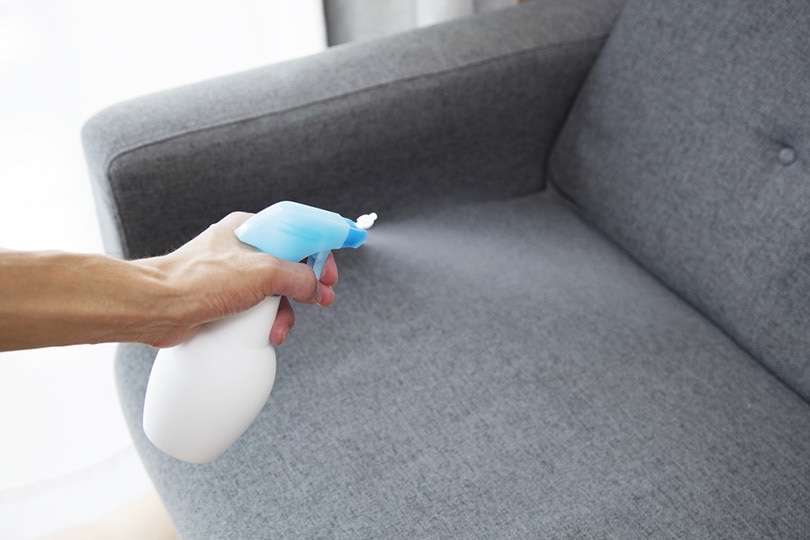
4. Provide Other Things to Lick
Could your pup be licking your furnishings because the chew toys aren’t enough? If so, buy more toys for it to chew on. Plenty of bones can also help.
5. Ensure Your Dog Has the Correct Diet
Dogs require a balanced diet just like humans. For this reason, provide it with every vital nutrient and offer it enough food. You can consult your family vet for a diet modification plan and be patient and wait for it to overcome the behavior.
6. Address the Health Problems
Health issues are beyond you, so the best you can do is present your pup to a vet for a proper diagnosis. This move will ensure there aren’t any neurological problems at work. Expect the vet to treat the underlying condition and advise on a supplementary behavior modification plan.
Conclusion
A dog that licks furniture could get instant relief and fulfill an instinct, but it isn’t a good thing for your soft fabric and the dog’s health.
Licking items means that your pet will access, pick up, and swallow all the things it shouldn’t ingest, like hair, dust, fibers from the fabric, and debris. Intestinal blockage isn’t fun for a dog, so it would be best to stop the behavior pronto.
Featured Image Credit: flashdashaway, Shutterstock





